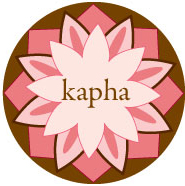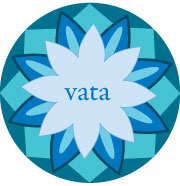
When a river flowing through a canyon becomes swollen with too much water, the river will erode the canyon walls, creating hard-to-move mud and debris.
Similarly, when too much earth is placed before a river’s current, the water will become boggy and stagnant, as though stopped by a dam.Kapha is the comprised of earth and water. Its qualities are like mud when out of balance, and like a river flowing through a canyon when healthy.
Kapha is the element that helps keep water and earth in proportion and perspective. It’s the only Dosha that’s truly heavy, cool, dense, stable, oily, slow and soft.
Like Ganesh, the beloved Hindu deity who takes form as an elephant and symbolizes good luck and new beginnings, Kapha types are the ones you want to call when times are tough.
Natural nurturers and protectors, Kapha types are laid back, generous people who excel at listening, loving, forgiving, providing and staying even-keeled in the face of stress.
Usually heavy set with good musculature, Kapha is known for wavy, lustrous hair, beautiful smooth skin and large eyes. They are blessed with endurance, stamina, stores of hydration and the ability to sleep long hours undisturbed.
Congestion, edema, fatigue, flatulence and fluid retention prevail when Kapha is too wet, sticky, slimy, cool or dense.
Kapha rules the hours between 6:00 a.m. to 10:00 a.m. and 6:00 p.m. to 10:00 p.m. The Kapha time of life is from infancy to puberty, the time of greatest growth and endurance.
Sound like you?
Then balance your Kapha Dosha inside the Check Your Weather: Ayurveda Yoga Intensive! Energized and vigorous yoga practices are favorable for Kapha; they encourage the air and fire elements to warm up Kapha’s core and bring more motivation and creativity into being.





